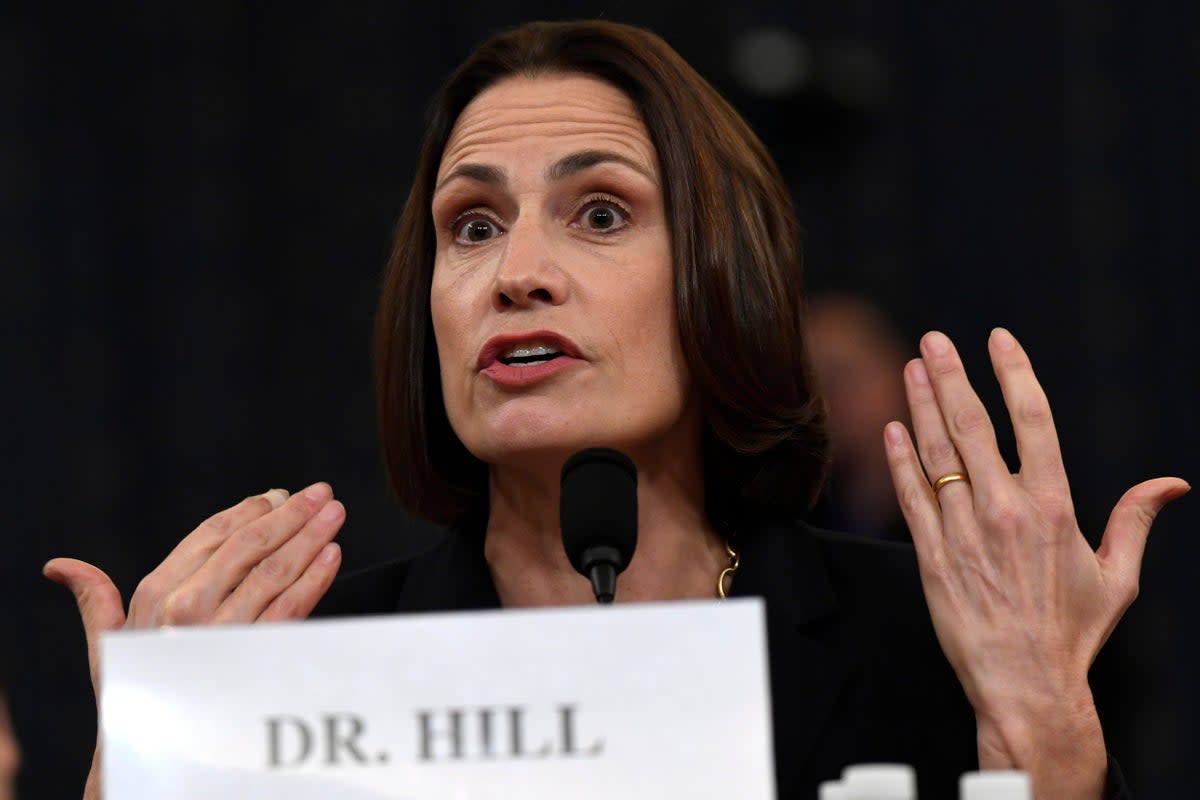
Fiona Hill, the Russia expert who previously served on the National Security Council during the Trump administration, has said that Elon Musk was “transmitting a message” for Vladimir Putin when he tweeted a proposal to end the war in Ukraine earlier this month.
In an interview with Politico, Ms Hill noted that Musk had made a similar statement regarding a possible end to the war at an event in Aspen, Colorado, back in September.
The crux of Musk’s proposal is that the Crimean Peninsula should remain under Russian control and that the future of the regions of Kherson and Zaporizhzhia should be negotiated due to their role in providing water supply to Crimea.
Ms Hill told the outlet: “The reference to water is so specific that this clearly is a message from Putin.”
She noted the Russian president “often uses various trusted intermediaries including all kinds of business people”.
“I had intermediaries sent to discuss things with me while I was in government,” she told Politico. “This is a classic Putin play. It’s just fascinating, of course, that it’s Elon Musk in this instance because obviously, Elon Musk has a huge Twitter following.”
Ms Hill was the NSC’s senior director for European and Russian affairs from 2017 to 2019 and testified during the first impeachment of then-president Donald Trump. She is now a senior fellow at the Brookings Institution.
Earlier this month, SpaceX and Tesla CEO Musk tweeted out his proposal for ending the conflict in Ukraine in the form of a poll. A further part of the plan was for UN-supervised elections in the four regions of Ukraine annexed by Russia.
Lawmakers in both Ukraine and the US reacted angrily to the proposal, with the Ukrainians reiterating their intent to retake all of their illegally annexed territories.
Ukraine-Russia Peace:
– Redo elections of annexed regions under UN supervision. Russia leaves if that is will of the people.
– Crimea formally part of Russia, as it has been since 1783 (until Khrushchev’s mistake).
– Water supply to Crimea assured.
– Ukraine remains neutral.
— Elon Musk (@elonmusk) October 3, 2022
Musk’s poll garnered more than 2.7 million responses to his poll and ended with 59 per cent of those voting against his plan to 40 per cent in favour.
Ian Bremmer, the founder of global political risk firm Eurasia Group, wrote in an email to his subscribers that Musk had told him that he spoke with Mr Putin who said he was “prepared to negotiate” provided Crimea remains in Russian hands.
However, Musk says this account is not true and he only spoke with the Russian president once, some 18 months ago, and the subject matter was space.
Ms Hill thinks that Musk is being used by Mr Putin and his popularity in Russia is one reason for approaching him.
“Putin plays the egos of big men, gives them a sense that they can play a role. But in reality, they’re just direct transmitters of messages from Vladimir Putin,” she explained.
During the early phases of the war, Musk was well-liked in Ukraine for keeping the country online through his Starlink terminals and service.
After threatening to end the service due to the high costs he later backed down and is reportedly discussing a funding program with the Pentagon.
In response to Musk’s poll, the president of Ukraine, Volodymyr Zelensky, posted another poll asking which Elon Musk people like more: one who supports Ukraine or one who supports Russia. Almost 79 per cent of the 2.4 million respondents opted for the first option.




